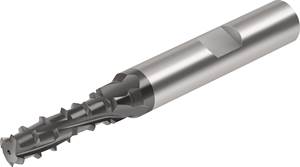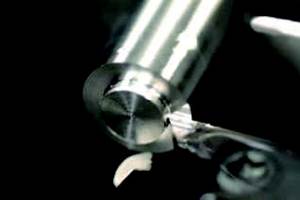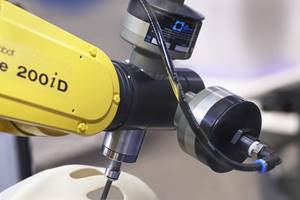Improved Tool Changeover Time And Increased Tool Life For Turret Punching
A desire to reduce CNC punch press tool setup time and shorten product deliveries motivated this shop to invest in a new tooling system.
Share








Takumi USA
Featured Content
View More
.png;maxWidth=45)
DMG MORI - Cincinnati
Featured Content
View MoreA desire to reduce CNC punch press tool setup time and shorten product deliveries motivated Diamond Perforated Metals, Inc. (Visalia, California) to invest in a new tooling system.
Diamond Perforated Metals is a leading supplier of perforated and expanded metals. These perforated sheets are used in the manufacture of a wide variety of products, including decorative lighting fixtures, architectural components, speaker grills, electronic chassis components, filtration equipment and nacelles for aircraft engines.
Hole designs include round, oval, square, diamond, rectangle, triangle and a variety of shapes such as clover and octagon. In addition, these holes are available in a range of sizes and patterns, from 0.050-inch diameter with 225 holes per square inch (HSI) to 1 ½-inch diamond shaped holes in expanded sheets. Materials include type 304 stainless, 5052 aluminum, standard sheet steel, titanium, bronze, inconel and more.
Diamond inventories sheet sizes up to 60 inches by 240 inches with standard hole shapes and sizes that customers order on a regular basis. These “standards” are punched on seven Allcross perforating presses. Custom hole patterns and sizes are produced on Amada CNC punching machines using a large variety of tools. To improve its turnaround time on these custom orders, Diamond Perforated Metals’ production coordinator, Wade Reiboldt, took a look at the company’s turret punching operations and the tooling it was using.
“We identified tool setup time and tool life as two areas where we needed to improve, believing the two would help us turn around customer orders more quickly and with improved part quality,” says Mr. Reiboldt.
The company operates an Amada Vipros 357 and an Amada Coma 567 turret punching machine. Because of the volume of different custom orders it handles with these machines, hundreds of different tools are kept in inventory. Specifying the correct tooling for a job and setting it up takes 20 to 30 minutes, and as many as eight tool changes are made in an eight-hour shift. The company operates three shifts a day, five days a week, year round. With machines down for tool setups two to four hours per shift, Mr. Reiboldt saw this as an important opportunity to improve so he began talking to tool suppliers to find a better way. That’s when he found John Delgadillo, sales representative for Mate Precision Tooling (Anoka, Minnesota).
“Mr. Delgadillo showed us how Mate’s Ultra tool system could be set up on the machine quickly and by hand without the use of wrenches,” says Mr. Reiboldt. “Ultra really had a nice feel to it because all of the tool components—the punches, dies and strippers—simply snapped together in your hands. The tools we were using required off-line tool assembly using a setup fixture, screwdriver and wrench. Shimming the punch to get the correct punch length was required, and the setup process took up to a half hour for some jobs. By comparison, we set up Mate’s Ultra in just five to ten minutes right at the machine, and our press operators love that.”
Diamond Perforated Metals’ initial investment in Mate Ultra tool canisters with a small quantity of punches and dies got the company started on what turned out to be tool setup efficiencies of 65 percent to 85 percent. With the Mate Ultra system, Diamond Perforated Metals improved its tool setup time immediately, not just by using the new tool components, but the old ones as well. With the Mate Ultra system, which accepts any brand of tool components, Mr. Reiboldt’s press operators were able to use new and old tool components interchangeably.
Diamond Perforated Metals regularly punches hard materials such as titanium and inconel. “These hard materials are tough to punch,” says Mr. Reiboldt. “They build heat in the punch tooling, and components wear out faster. With Ultra’s unique design, harder materials like titanium are punched with less stress and wear to the tool components. That’s because Ultra’s hardened and ground guides reduce abrasive action of punching hard materials, defusing heat effectively, resisting galling, and extending tool and turret life. Also, the tools’ interior and exterior spiral grease grooves provide even and consistent tool lubrication.”
Another Ultra feature Mr. Reiboldt liked was the Slug Free die design, which keeps slugs from sticking in the die area and preventing damage to tools and finished parts.
Another important feature that the company liked is Ultra’s quick length adjustment. This is achieved by pushing a button and rotating the punch head. The feature provides an extra 3/16-inch on the overall punch length, which gives users double the sharpenings of the punch, adding to its usable life.
An important benefit using Ultra was the increase in throughput speeds allowed by the tooling. Ultra’s operating features, including tool lubrication, are designed to handle the upper speeds of the Amada machines and Diamond Perforated Metals’ large number of holes, which range as high as 1,000,000 in a single 60-inch by 240-inch sheet. “We very often run at 230 strokes per minute on thinner materials and slower on harder materials such as stainless. Material thickness and type, hole shape and size all have an effect on throughput speed,” says Mr. Reiboldt, “but generally we are able to operate at significantly higher speeds using Ultra.”
Diamond Perforated Metals’ use of Mate’s Ultra cluster tools, in addition to single station tools, increases the number of holes per hit by several times. The company has more than 100 different cluster punches, tools and dies in inventory and uses them on jobs requiring large numbers of holes in a single sheet. The cluster tooling design guides the punch point at the tip as it contacts the work material. This support enables the tool to achieve better performance. On parts requiring thousands of holes, for example, Ultra cluster tooling increases output significantly and still retains hole quality. Hole edges are clean without burrs and sheets stay flat.
“Some punched sheets have more holes than material,” says Mr. Reiboldt, “which can cause the material to bend and deform. Mate’s Ultra cluster tools hold the sheet flat when it’s punched and punch it cleanly so there is no material bending.” MMS
Related Content
Selecting a Thread Mill That Matches Your Needs
Threading tools with the flexibility to thread a broad variety of holes provide the agility many shops need to stay competitive. They may be the only solution for many difficult materials.
Read MoreThe Future of High Feed Milling in Modern Manufacturing
Achieve higher metal removal rates and enhanced predictability with ISCAR’s advanced high-feed milling tools — optimized for today’s competitive global market.
Read MoreToolpath Improves Chip Management for Swiss-Type Lathes
This simple change to a Swiss-type turning machine’s toolpath can dramatically improve its ability to manage chips.
Read MoreHow to Accelerate Robotic Deburring & Automated Material Removal
Pairing automation with air-driven motors that push cutting tool speeds up to 65,000 RPM with no duty cycle can dramatically improve throughput and improve finishing.
Read MoreRead Next
5 Rules of Thumb for Buying CNC Machine Tools
Use these tips to carefully plan your machine tool purchases and to avoid regretting your decision later.
Read MoreBuilding Out a Foundation for Student Machinists
Autodesk and Haas have teamed up to produce an introductory course for students that covers the basics of CAD, CAM and CNC while providing them with a portfolio part.
Read MoreRegistration Now Open for the Precision Machining Technology Show (PMTS) 2025
The precision machining industry’s premier event returns to Cleveland, OH, April 1-3.
Read More




















.png;maxWidth=150)



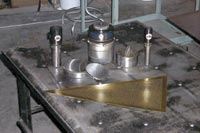
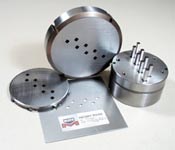





.jpg;maxWidth=300;quality=90)


.jpg;maxWidth=300;quality=90)










